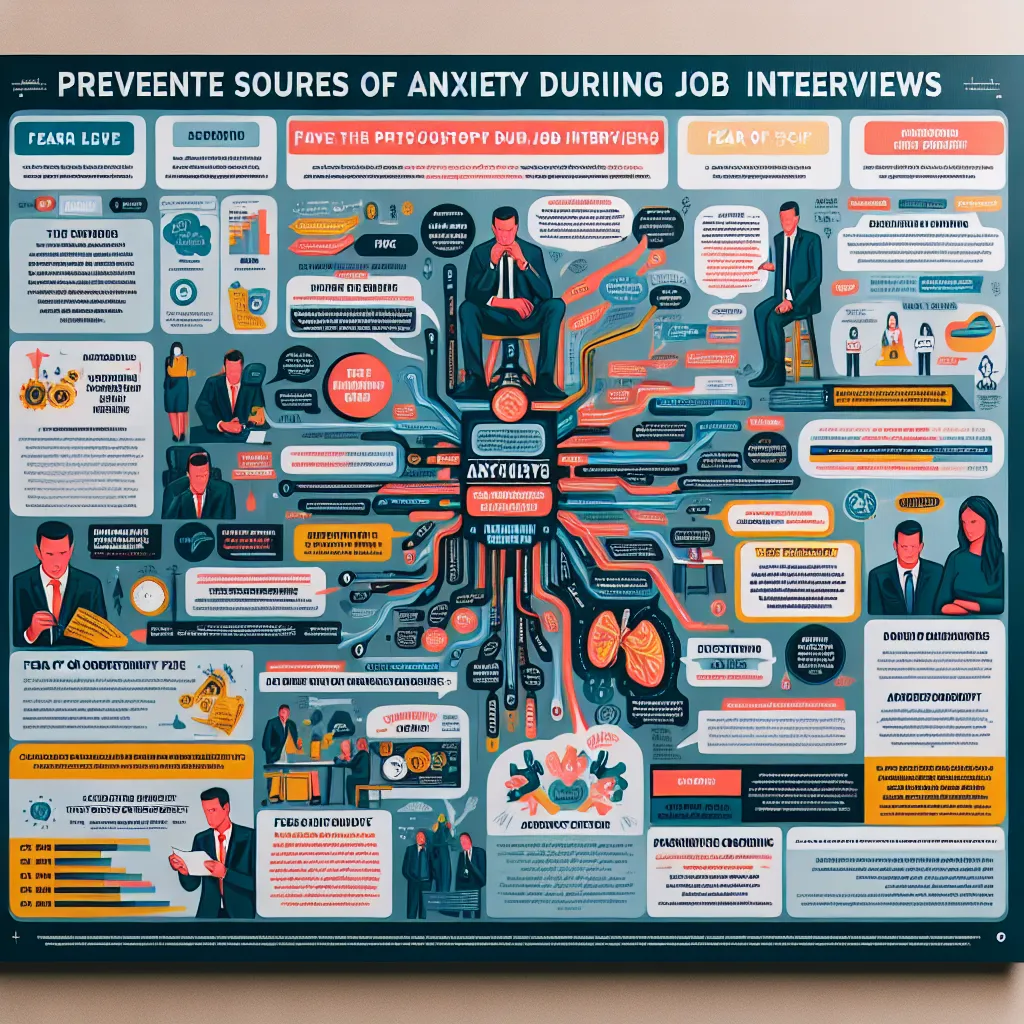In today’s competitive job market, being able to effectively communicate your technical skills during an interview is crucial. Whether you’re a seasoned professional or a recent graduate, knowing how to articulate your technical expertise can make the difference between landing your dream job and missing out on opportunities. This guide will provide you with valuable insights and strategies to help you confidently answer questions about your technical skills during job interviews.
Understanding the Importance of Technical Skills in Interviews
Technical skills are specific abilities and knowledge related to your field of expertise. They are essential for performing job-specific tasks and are highly valued by employers. When interviewers ask about your technical skills, they’re not just assessing your knowledge but also your ability to apply that knowledge in real-world scenarios.
How Interviewers Evaluate Technical Skills
Interviewers typically assess technical skills through various methods:
- Direct questioning about specific technologies or methodologies
- Problem-solving scenarios or case studies
- Technical assessments or coding challenges
- Discussion of past projects and experiences
Understanding these evaluation methods can help you prepare more effectively for your interview.
 Technical Skills Interview
Technical Skills Interview
Strategies for Answering Technical Skills Questions
1. Be Honest and Accurate
Always be truthful about your skills and experience level. It’s better to admit when you’re not familiar with a particular technology than to exaggerate your knowledge.
Example:
Interviewer: “How proficient are you with Python?”
Good Answer: “I have three years of experience using Python for data analysis and web development. I’m comfortable with most aspects of the language, but I’m always eager to learn more advanced techniques.”
2. Provide Specific Examples
When discussing your technical skills, use concrete examples from your past experiences to illustrate your expertise.
Example:
Interviewer: “Can you tell me about a time you used SQL to solve a complex problem?”
Good Answer: “Certainly. In my previous role, I was tasked with optimizing our database queries to improve application performance. I identified several inefficient queries and rewrote them using advanced SQL techniques like subqueries and window functions. This resulted in a 40% reduction in query execution time, significantly improving our application’s responsiveness.”
3. Demonstrate Problem-Solving Skills
Show how you approach technical challenges and solve problems using your skills.
Example:
Interviewer: “How would you debug a program that’s running slowly?”
Good Answer: “I would start by profiling the code to identify performance bottlenecks. Then, I’d analyze the most time-consuming parts of the program, looking for inefficient algorithms or resource-intensive operations. I’d also check for memory leaks and optimize database queries if applicable. Finally, I’d implement and test improvements iteratively, measuring performance gains at each step.”
4. Highlight Continuous Learning
Emphasize your commitment to staying updated with the latest technologies and trends in your field.
Example:
Interviewer: “How do you keep your technical skills current?”
Good Answer: “I’m passionate about continuous learning. I regularly attend industry conferences, participate in online courses, and contribute to open-source projects. Recently, I completed a certification in cloud computing to expand my expertise in that area. I also follow several tech blogs and engage in coding challenges to sharpen my skills.”
5. Connect Skills to Business Value
Explain how your technical skills can benefit the company and contribute to its goals.
Example:
Interviewer: “How can your experience with machine learning benefit our company?”
Good Answer: “My expertise in machine learning can help your company in several ways. For instance, I could develop predictive models to forecast customer behavior, potentially increasing sales and customer retention. Additionally, I could implement automated data analysis pipelines to streamline decision-making processes and improve operational efficiency.”
Handling Technical Questions Outside Your Expertise
It’s common to encounter questions about technologies or concepts you’re not familiar with. Here’s how to handle these situations gracefully:
- Be honest about your level of knowledge
- Express your willingness to learn
- Relate the question to similar technologies you do know
- Ask clarifying questions to show your problem-solving approach
Example:
Interviewer: “Are you familiar with Kubernetes?”
Good Answer: “While I haven’t worked directly with Kubernetes, I have experience with Docker containerization and understand the principles of container orchestration. I’m very interested in learning more about Kubernetes and how it can improve deployment and scaling of applications. Could you tell me more about how your team uses Kubernetes in your projects?”
Common Mistakes to Avoid When Discussing Technical Skills
- Overestimating your abilities: Be realistic about your skill level to avoid setting unrealistic expectations.
- Using jargon excessively: While technical terms are important, ensure you can explain concepts in simple terms when necessary.
- Focusing solely on technical aspects: Remember to highlight soft skills like teamwork and communication alongside your technical expertise.
- Neglecting to showcase problem-solving skills: Don’t just list technologies; demonstrate how you apply them to solve real-world problems.
- Failing to prepare for technical questions: Research common technical interview questions in your field and practice your responses.
 Technical Skills Preparation
Technical Skills Preparation
Follow-up Questions and Sample Answers
Here are some common follow-up questions you might encounter during a technical interview, along with suggested answers:
-
Q: “Can you explain a complex technical concept to a non-technical person?”
A: “Certainly. Let’s take the concept of cloud computing as an example. Imagine the cloud as a giant, shared computer that you can access over the internet. Instead of storing files or running programs on your own computer, you can do it on this shared computer. This allows you to access your work from anywhere and scale your resources up or down as needed, without having to buy and maintain your own expensive hardware.” -
Q: “How do you stay motivated when working on long-term technical projects?”
A: “I find that breaking down long-term projects into smaller, manageable tasks helps me stay motivated. I set regular milestones and celebrate small victories along the way. Additionally, I enjoy collaborating with team members and sharing progress, which keeps me accountable and energized. When faced with challenges, I remind myself of the project’s ultimate goal and the impact it will have, which reignites my motivation.” -
Q: “Describe a technical challenge you faced and how you overcame it.”
A: “In my previous role, we were developing a mobile app that was experiencing severe performance issues on older devices. I led a team to investigate the problem and discovered that inefficient rendering was causing the app to consume excessive memory. We optimized the UI components, implemented lazy loading for images, and refactored our state management approach. These changes resulted in a 60% improvement in app performance across all devices, significantly enhancing user experience and retention rates.” -
Q: “How do you approach learning a new programming language or technology?”
A: “When learning a new technology, I start by understanding its core concepts and use cases. I then follow official documentation and tutorials to get hands-on experience. I believe in learning by doing, so I always create small projects to apply what I’ve learned. Additionally, I engage with the community through forums and local meetups to gain insights from experienced practitioners. Finally, I try to teach others what I’ve learned, as it reinforces my understanding and helps me identify areas for further improvement.” -
Q: “How do you ensure the quality and reliability of your code?”
A: “I follow several practices to maintain code quality and reliability. First, I adhere to clean coding principles and established style guides. I write unit tests for my code and aim for high test coverage. I also perform code reviews and welcome feedback from my peers. Additionally, I use static code analysis tools to catch potential issues early. For larger projects, I advocate for continuous integration and automated testing to ensure that new changes don’t introduce regressions. Lastly, I believe in the importance of documentation, both within the code and in external resources, to enhance maintainability.”
Conclusion
Answering questions about technical skills effectively requires a combination of thorough preparation, honest self-assessment, and clear communication. By following the strategies outlined in this guide, you can confidently showcase your technical expertise and demonstrate your value to potential employers. Remember to practice your responses, stay updated with industry trends, and always be ready to provide concrete examples of your skills in action. With these techniques, you’ll be well-equipped to ace your next technical interview and take the next step in your career.
For more insights on acing your job interviews, check out our articles on how to answer tough interview questions and interview questions for experienced professionals.




